By Willow Hutchison, 23 November 2023
November is officially known as Native American Heritage Month, but it is more than just a symbolic celebration.
Native Americans are celebrated for their rich culture and unique history in the month of November, while remembering the violence and dispossession they endured as the United States expanded.
The designation became official after former President Ronald Reagan proclaimed American Indian Week. The period of recognition extended to a month under subsequent presidents.
On October 31st, President Biden made a proclamation in which he recognized the “invaluable contributions of Native People that have shaped our country.”
While he shed light on Native contributions, he also acknowledged the history of removal and oppression.
“Native people were pressured to assimilate, banned from practicing their traditions and sacred ceremonies, and forced from their homes,” said Biden.
Biden also noted that the month is meant to recognize the stories, languages, and traditions of Native Hawaiians, Indigenous Puerto Ricans, and Alaska Natives, in addition to Native Americans.
One of the Better Tomorrow Speaker Series’ fall lecturers has devoted his career to advancing the rights and interests of Indigenous peoples in the Pacific, Julian Aguon.
As an Indigenous human rights lawyer and writer from Guam, Aguon is a founder of Blue Ocean Law, which works at the intersection of Indigenous rights and environmental justice.
In his visit in October, he sat down to discuss Law, Indigeneity, and Climate Justice with Kapuaʻala Sproat, Professor of Native Hawaiian and Environmental Law at the University of Hawaiʻi at Mānoa William S. Richardson School of Law.
A focus of the conversation was Native connections to land, in Hawai‘i, on the continent, and throughout the Pacific.
“It’s a crazy inseparable thing: Indigenous people from the lands that they live on and love,” said Aguon.
In their conversation, they also discussed landmark environmental and Indigenous rights cases in Guam, Hawaii, and beyond. Listen in here and think about how you can contribute to justice for Native peoples in November and all year long.
Sproat also chimes in on the conversation and weighs in with her personal stake on the topic of indigeneity as a Native Hawaiian and Environmental Law professor.
“These international human rights principles of self-determination here in Hawaii. . . they’re actually rooted at the bottom in indigenous principles,” said Sproat.
Indigenous people can all be celebrated for how they value life and their principles, coming from past generations to be passed on to the future, which are the children learning these practices.
Even though the month is coming to a close, there are still ways that people can support and celebrate the rich cultures of Native individuals. You can do this by visiting your local shop and picking up a book written by a Native American. Find a podcast and listen to a conversation between two indigenous people in your free time. Even visit a historical site like a museum or heritage center nearby to discover more about what it means to be an indigenous person.
The official Native American Heritage Month goes beyond just November. It is a constant reminder that should be carried in everyone’s minds of all that indigenous people have contributed to America.
Indigenous people are seen every day, and a month isn’t enough to celebrate their existence.



